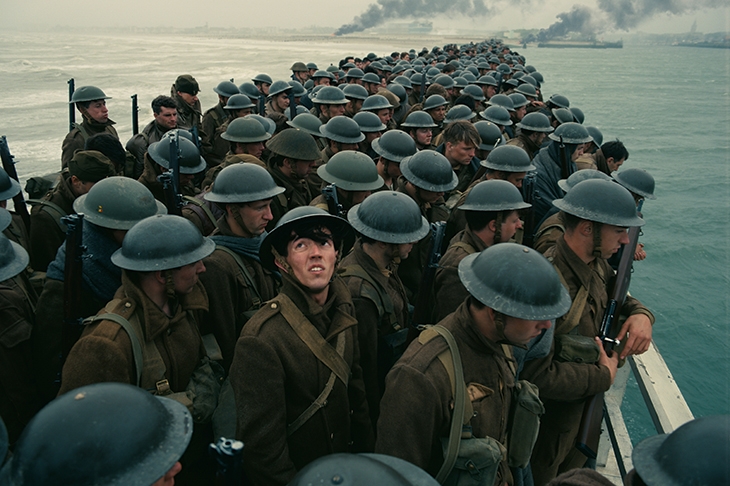Christopher Nolan’s Dunkirk has already been described as ‘a masterpiece’ and ‘a glorious, breathtakingly vivid triumph’, but we need to be cautious. Look at all the fuss about Baby Driver and what an average film that turned out to be. This certainly isn’t your regular war film — no one, for example, says ‘it’s quiet’ and is then told: ‘yes, too damned quiet…’ — but in wanting to deliver a visceral, visual experience, without the hindrance of exposition or back stories, the narrative is often confusing and doesn’t add up to much emotionally. I suppose I should also add that, aside from the odd glimpse of a nurse, there are no roles for women, although, in this instance, I have decided not to call for any kind of boycott. (I must be softening in my old age.)
This account of the Allied evacuation of occupied France in 1940, which still seems entirely miraculous — 338,226 men were rescued — is told from three perspectives: land, air and sea.

Get Britain's best politics newsletters
Register to get The Spectator's insight and opinion straight to your inbox. You can then read two free articles each week.
Already a subscriber? Log in







Comments
Join the debate for just £1 a month
Be part of the conversation with other Spectator readers by getting your first three months for £3.
UNLOCK ACCESS Just £1 a monthAlready a subscriber? Log in